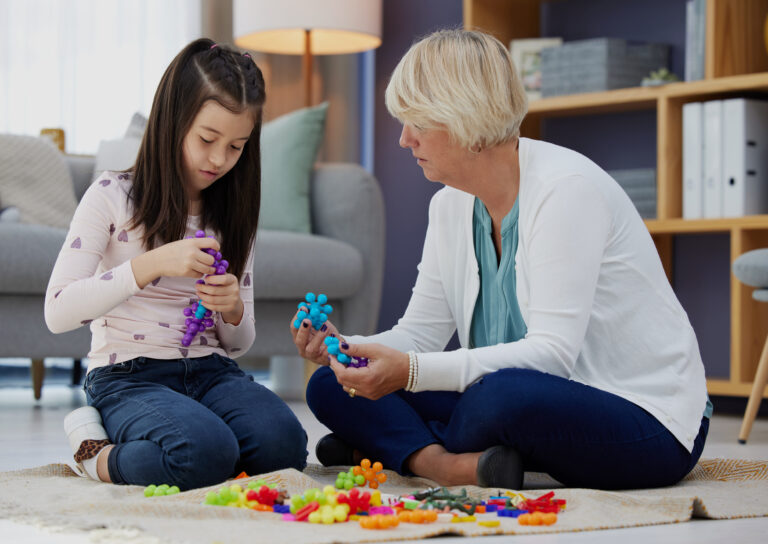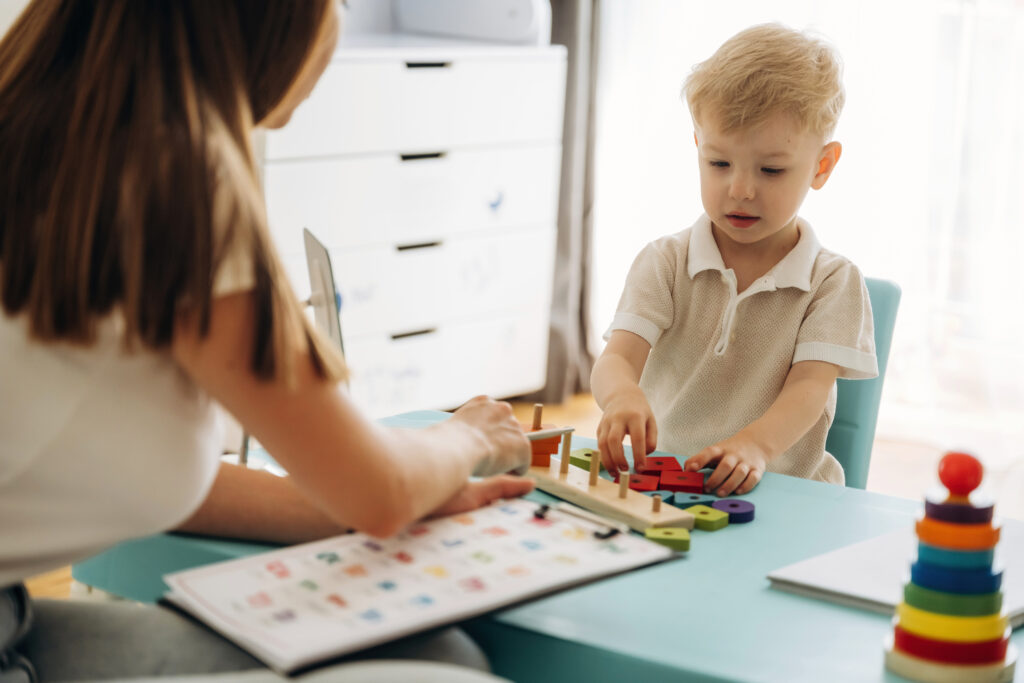We offer comprehensive Autism Assessments at our Kids Chatter Speech Pathology clinic in Indooroopilly, Brisbane.

What to Expect in the Assessment
Getting an Autism Assessment at Kids Chatter Speech Pathology involves 5 main steps:
- Completion of questionnaires to gather background and developmental information about your child
- Parent-Only consultation prior to the assessment with your child
- In clinic assessment with your child
- Parent-Only feedback to discuss the results
- Comprehensive written report
(See the flyer below for additional details)
Our assessments are all conducted in our Indooroopilly clinic with our Speech Language Pathologist. Depending on your child’s age, developmental profile, and communication style, the SLP will choose the most suitable assessment tool, either the ADOS (Autism Diagnostic Observation Schedule) or the MIGDAS (Monteiro Interview Guidelines for Diagnosing the Autism Spectrum). Both tools are recognised and widely used in identifying autism, but each offers a different approach to understanding how an individual experiences and interacts with the world.
After your child’s assessment and the completion of questionnaires, the findings are reviewed in collaboration with Clinical Psychologist, Kathleen Cleland from MindScope as part of our multidisciplinary assessment team.
During the parent feedback session, we’ll discuss the findings, diagnosis (if applicable), and recommendations, and answer any questions or concerns you may have. A comprehensive written report is provided within 3 – 4 weeks.

Cost
$193.99/hour
Total number of hours between SLP and Psych: 10 hours
Total cost: $1,939.90
Call us to enquire or make a booking 0432 735 044What is Autism?
Autism is a lifelong neurodevelopmental difference that influences how a person experiences, communicates, and interacts with the world around them.
In autistic individuals, brain development and processing differ from non-autistic people, and presentation can vary significantly between individuals. Autism often looks different in girls and those who are diagnosed later in life.
Autism is not a mental health condition or an intellectual disability, although some autistic people may also experience these challenges. Autistic individuals can have a wide range of intellectual abilities — from highly gifted to those with an intellectual disability — and often possess unique strengths and ways of thinking.
In Australia, around 1 in 150 people are autistic.
Early identification and support are important for helping children develop communication, social, and daily living skills that enhance quality of life. However, many individuals are diagnosed later in childhood or adulthood, particularly those whose signs are more subtle or masked.

What are the Characteristics of Autism?
The core characteristics of autism generally fall into 2 areas:
- Differences in social communication and interaction
- Repetitive or restricted patterns of behaviour, interests, or sensory experiences
Common signs may include:
- Differences in social or emotional exchanges such as reduced showing or sharing of interests
- Limited use of gestures or facial expressions
- Difficulty developing and maintaining same-age friendships
- Repetitive language, movements, or play patterns
- A strong preference for routines or predictability
- Intense reactions to sensory input such as sounds, lights, textures, or smells
- Deep focus on particular interests or topics
- Challenges managing emotions such as frequent or prolonged meltdowns
Less common or more subtle signs (often seen in autistic girls or later-diagnosed individuals):
- Difficulty establishing or maintaining friendships
- Differences in eye contact (either intense or fleeting)
- Strong interests that may appear typical for age, but with unusual intensity or focus (e.g. animals, specific colours, or particular TV shows)
- A formal or “adult-like” speaking style or scripted way of talking
- Enjoying correcting others or sharing factual information
- Missing social cues or conversational turn-taking
- Very literal interpretation of language
- Neutral or flat facial expressions
- Preference for interacting with younger or older children rather than peers
- Enjoyment of structure, routine, and predictability
- Appearing fidgety or restless
- Difficulty identifying others’ emotions, especially subtle ones (e.g. noticing when someone looks sad versus when they are crying)
- Social anxiety or discomfort in group situations
Reasons for Having an Autism Assessment
An autism assessment may be recommended by an educator, health professional, or by you as a parent/caregiver if you have concerns. A diagnosis can help:
- Support your child’s self-understanding and wellbeing
- Build awareness and acceptance of their unique strengths and differences
- Access the right supports and services
- Access funding (such as NDIS funding) for therapy and services, if eligible.

